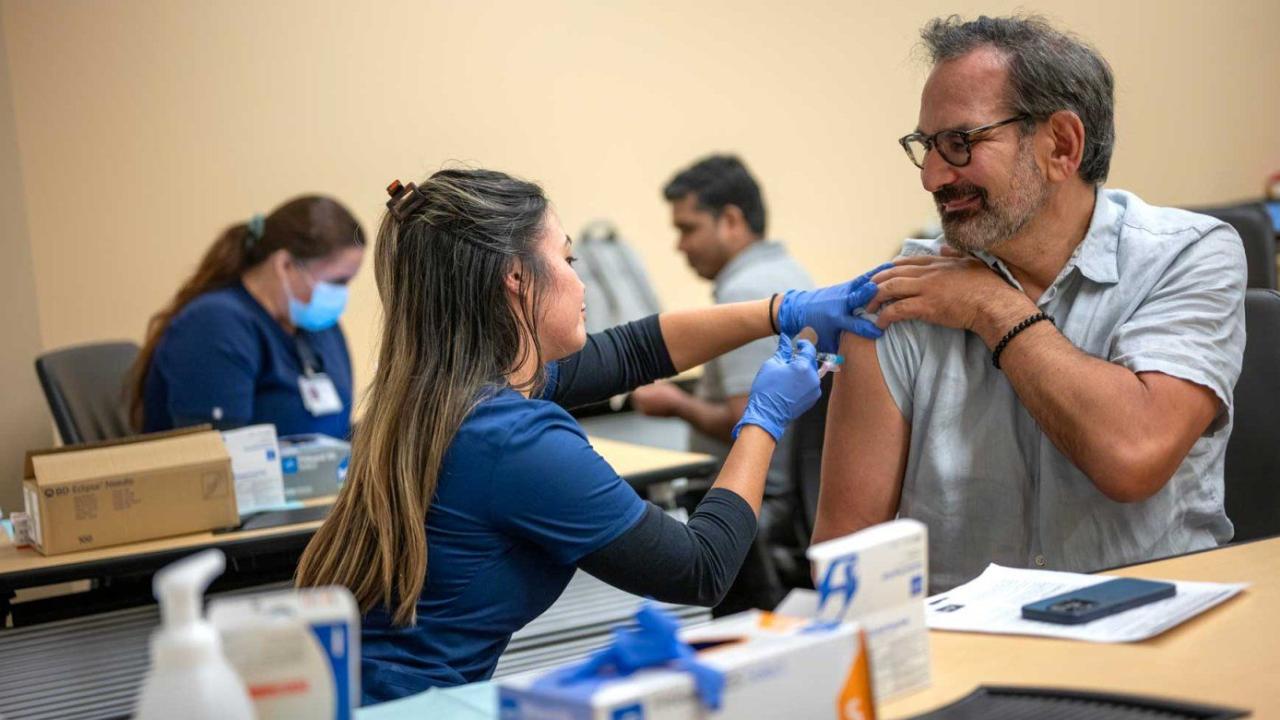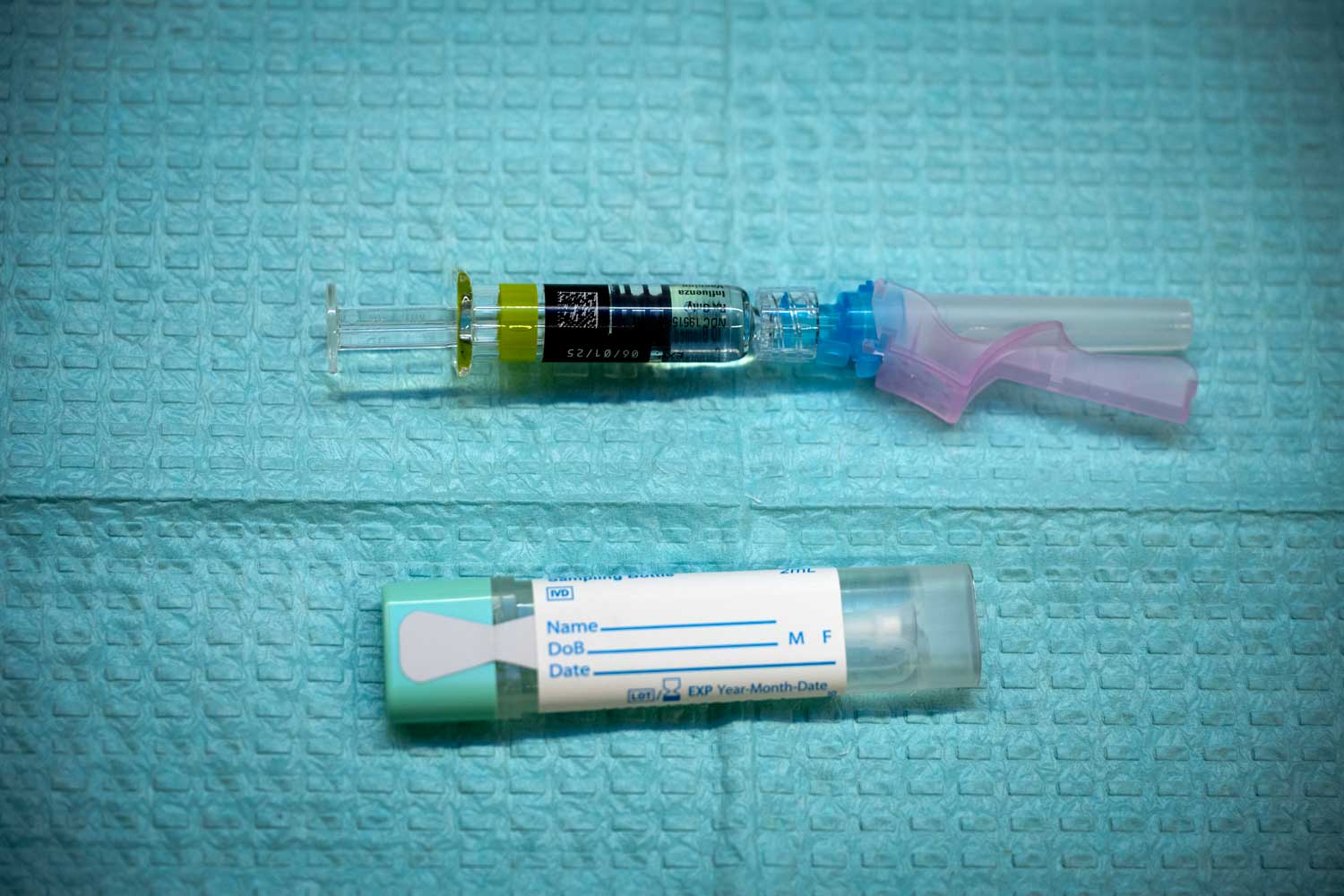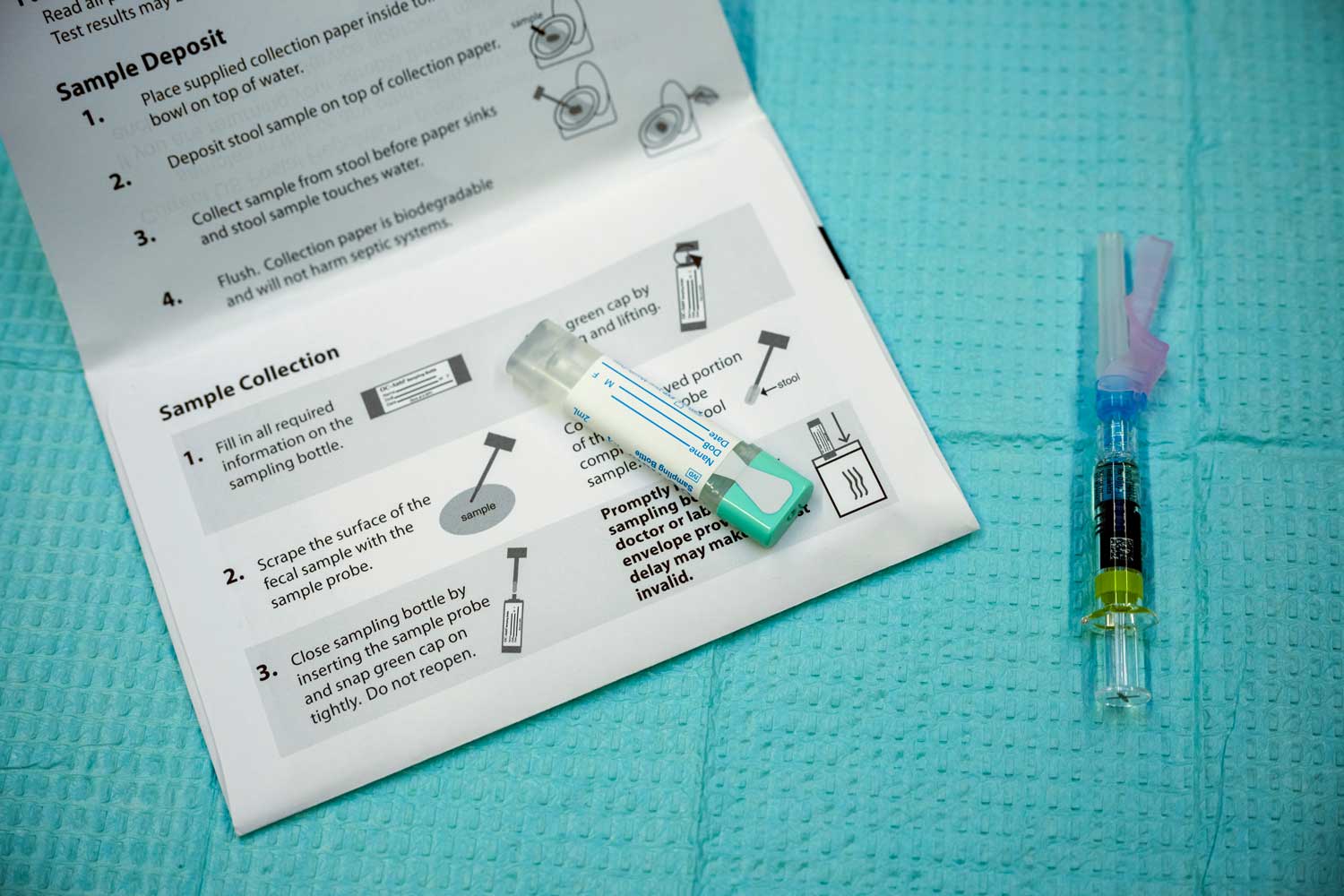
Colorectal cancer cases are rising among younger people, striking even folks without obvious risk factors.
For nearly two decades, UC San Francisco Family Community Medicine Professor Micheal Potter, MD, has worked to make cancer screening easier.
But getting otherwise healthy adults in for regular tests to detect cancer early is more complicated than it seems. More than 15 years ago, Potter worked with San Francisco community health clinics to develop a model that paired colorectal cancer screening with something about half of us do annually anyway: get a flu shot.

Featured Expert
Michael Potter, MD
Professor, Family Community Medicine
The model has community clinicians offer take-home fecal immunochemical tests (FIT) for colorectal cancer alongside flu shots in a model dubbed FluFIT. Folks who opt for the screeners can collect samples at home before sending them to a lab for tests.
Today, community health centers in all 50 states have used Potter’s model, first developed at UCSF to save lives. Potter tells us how colorectal cancer risk is changing and what to know about screening.
How has colorectal cancer risk changed?
The risk of colorectal cancer increases with age, and the vast majority of people who get colorectal cancer are above 50. But over the last few years, we’ve seen that people who are in their 40s develop about the same risk of colorectal cancer as people in their 50s would have had two decades ago.
Why are people getting colorectal cancer at younger ages?
We don’t yet know why people are developing cancers earlier, but this seems to be a global phenomenon and not just restricted to colorectal cancer. A lack of physical activity, increasing rates of obesity or toxic substances in our food supply, such as microplastics, could be why we’re seeing more cancer in younger people.
When should I start screening for colorectal cancer?
Because of the shift toward younger people being diagnosed with colorectal cancer, most U.S. guidelines now recommend screening beginning at age 45 instead of waiting until age 50, as was previously recommended.

Doing a FIT every year is enough. For most people, it’s equivalent to getting a colonoscopy once every 10 years.
Does this change if I have a history of colorectal cancer in my family?
Yes. People with known risks for colorectal cancer, such as a parent or sibling diagnosed with colorectal cancer at a young age, or with multiple family members diagnosed with it, should be screened earlier. People with a family history of colorectal cancer should make sure their doctor is aware. For those with familial genetic disorders that predispose to colorectal cancer, screening before age 45 can be very important.
How does FIT work?
This test detects microscopic amounts of human blood protein in the stool, which is a sign of bleeding that could be coming from early cancer or from a polyp that could develop into cancer if left untreated.

A fecal immunochemical test (FIT). Patients can request these take-home screeners during their flu vaccination, or from their clinics. Photo by Deanne Fitzmaurice
How often should I get a FIT?
While colon polyps and cancers usually develop slowly over many years, lesions can be missed if you only get the test sporadically. However, in terms of saving lives, doing a FIT every year is enough. For most people, it’s equivalent to getting a colonoscopy once every 10 years.